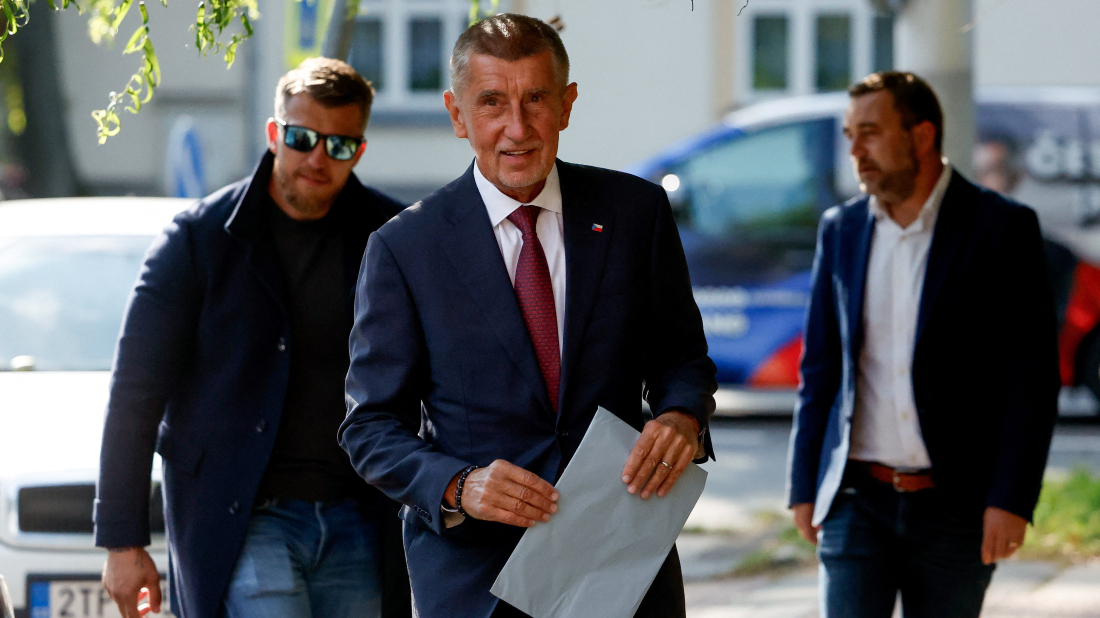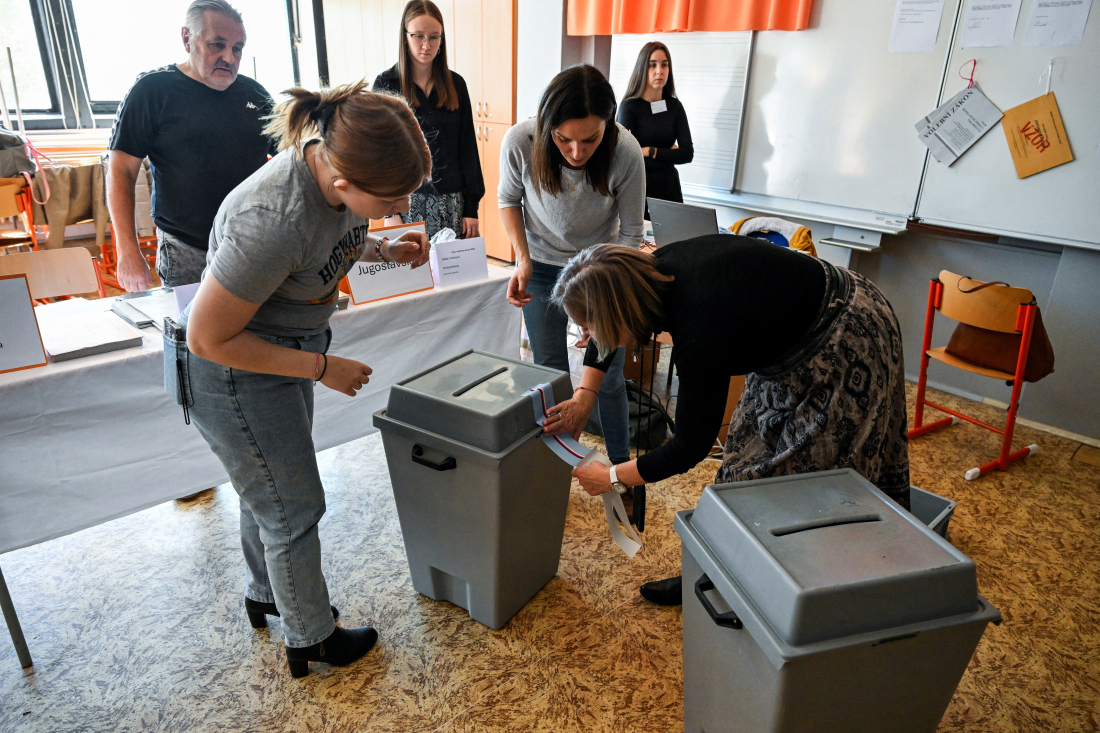Trump says additional talks with Iran expected on Friday
Tensions between the U.S. and Iran are escalating, with Washington ordering a significant military build-up in the region and multiple countries evacu...

Czechs began voting on Friday in an election likely to oust their centre-right government, with polls favouring populist billionaire Andrej Babis to return to power on pledges to raise wages and lift growth while reducing aid for Ukraine.
The change would boost Europe's populist anti-immigration camp and could complicate consensus on climate policies in a country where no sitting government has won a second term since 1996.
Czechs endured inflation surges after the global pandemic and Russia's invasion of Ukraine, and have had a slow recovery from one of Europe's worst drops in real incomes.

That has hurt the popularity of Prime Minister Petr Fiala's Spolu coalition and its liberal government allies, who focused on lowering the budget deficit.
Both candidates made last-ditch appeals to voters on Friday morning, with Babis handing out doughnuts in the industrial city of Ostrava.
Babis is an ally of Hungary's Viktor Orban in the Patriots for Europe group in the European Parliament, and has taken an ambivalent line on aid to Ukraine, a departure from Fiala's government that quickly took a firm stance to support Kyiv after Russia's full-scale invasion in 2022.
While donating less than others financially, the Czechs were among the first to provide tanks and fighting vehicles and they set up the so-called "Czech initiative" pulling together traders and defence officials to find millions of artillery rounds around the world for Kyiv with financing from Western countries.
Babis has pledged to end the ammunition project, saying it is overpriced. He wants NATO and the EU to handle Ukraine.
"We don't have the money here for our people. Our programme is for a better life for Czech citizens... We are not in Ukraine," Babis, 71, said in a Wednesday debate on CNN Prima News television.
Babis party short of allies
Polls point to Babis's ANO party winning more than 30% of the vote, about 10 points more than Fiala's Spolu coalition. But, even with a small ally called Motorists, it will likely lack a majority in the 200-seat lower house of parliament.
ANO's sour relations with Spolu and its allies mean the party may need support from anti-EU and anti-NATO fringe parties, the far-right SPD and the far-left Stacilo! - for its preferred one-party cabinet.
Babis has rejected any steps towards exit from the EU or NATO, including calls for referendums, countering accusations by the current government that he would drag the country off its democratic pro-Western course.
"This fearmongering will scare many voters, but that is a pity as it is not based on the truth," Martin Klihavec, an entrepreneur voting ANO, said at a Babis rally in Kralupy near Prague earlier this week.
"Under Babis's previous government, I was better off."
Babis must overcome other hurdles to become prime minister. As the owner of a chemicals and food empire, he needs to find a way to comply with conflict-of-interest laws. He also faces a trial on fraud charges related to drawing an EU subsidy more than 15 years ago, a charge he denies.
Spolu and its allies could retain a majority if some small parties win fewer votes than the 5% threshold needed to get into parliament, a scenario that helped them in the last election but is unlikely to be repeated, according to pollsters.
Polls will be open until 10 p.m. (2000 GMT) on Friday and from 8 a.m. until 2 p.m. on Saturday, with results expected that afternoon.
Tensions between the U.S. and Iran are escalating, with Washington ordering a significant military build-up in the region and multiple countries evacuating diplomatic staff amid fears of further instability.
The death toll from heavy rains and flooding in Brazil’s Minas Gerais state has risen to 46, authorities said, with 21 people still reported missing. The storms triggered landslides and widespread flooding, displacing thousands across Juiz de Fora and Uba.
The situation in Cuba was heating up and called for restraint following a deadly incident involving a Florida-registered speedboat off the coast of the Caribbean island, the Kremlin said on Thursday (26 February).
Pakistani air strikes hit a weapons depot on the western outskirts of Kabul overnight, triggering hours of secondary explosions that rattled homes across the Afghan capital and left residents fearing further violence.
Venezuela’s Attorney General Tarek William Saab and Ombudsman Alfredo Ruiz tendered their resignations to the National Assembly on Wednesday. Neither official has publicly provided reasons for stepping down.
Tensions between the U.S. and Iran are escalating, with Washington ordering a significant military build-up in the region and multiple countries evacuating diplomatic staff amid fears of further instability.
Two people were killed and around 40 injured when a tram derailed in central Milan on Friday (27 Februrary), a spokesperson for local firefighters said.
Colombia’s commerce minister, Diana Marcela Morales, has said she will propose raising tariffs on certain Ecuadorian goods from 30% to 50%, as a trade dispute between the neighbouring countries intensifies.
Former U.S. President Bill Clinton said on Friday (27 February) that he had no knowledge of the crimes committed by Jeffrey Epstein and would not have flown on the late convicted sex offender’s plane had he had any inkling of his activities.
Some of Iran's most highly enriched uranium, close to weapons grade, was stored in an underground area of its nuclear site in Isfahan, the UN nuclear watchdog said in a confidential report sent to member states on Friday (27 February).
You can download the AnewZ application from Play Store and the App Store.

What is your opinion on this topic?
Leave the first comment